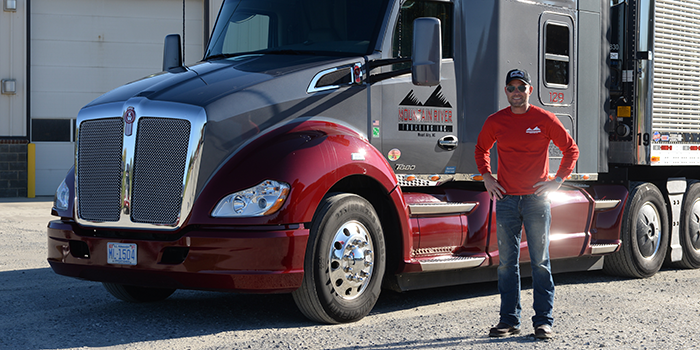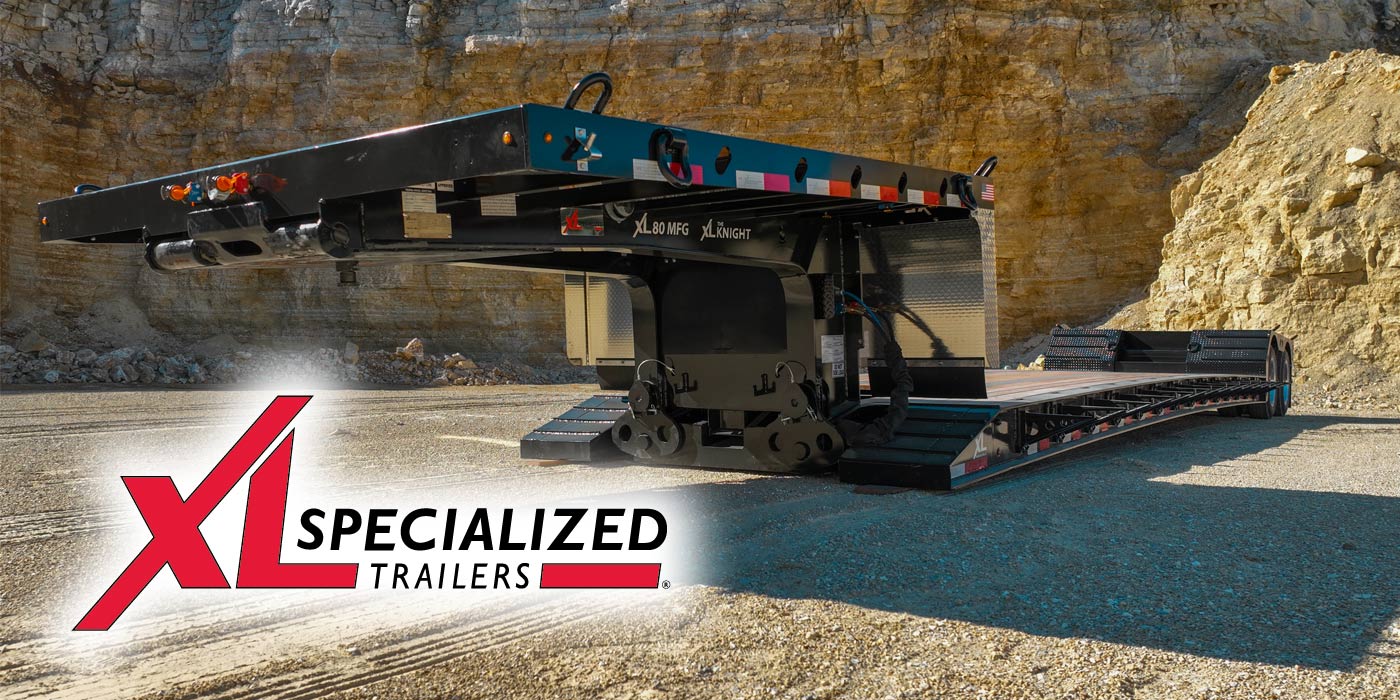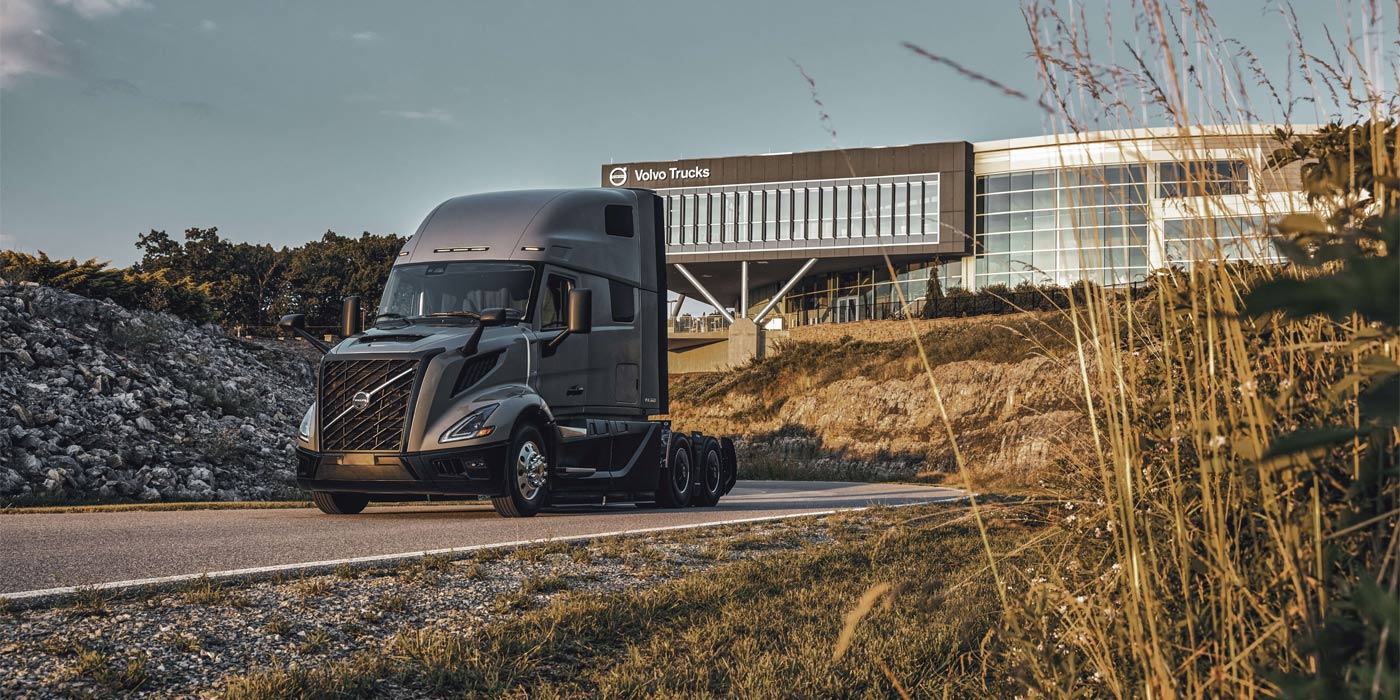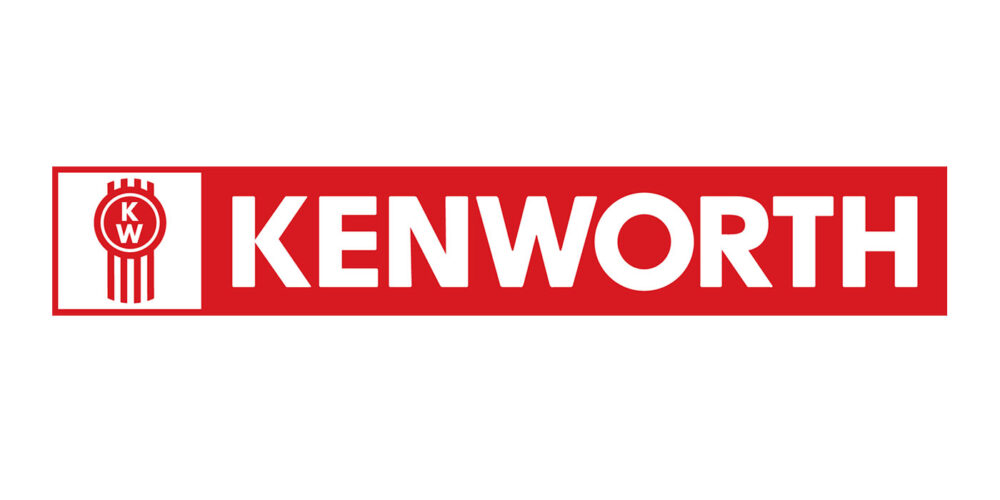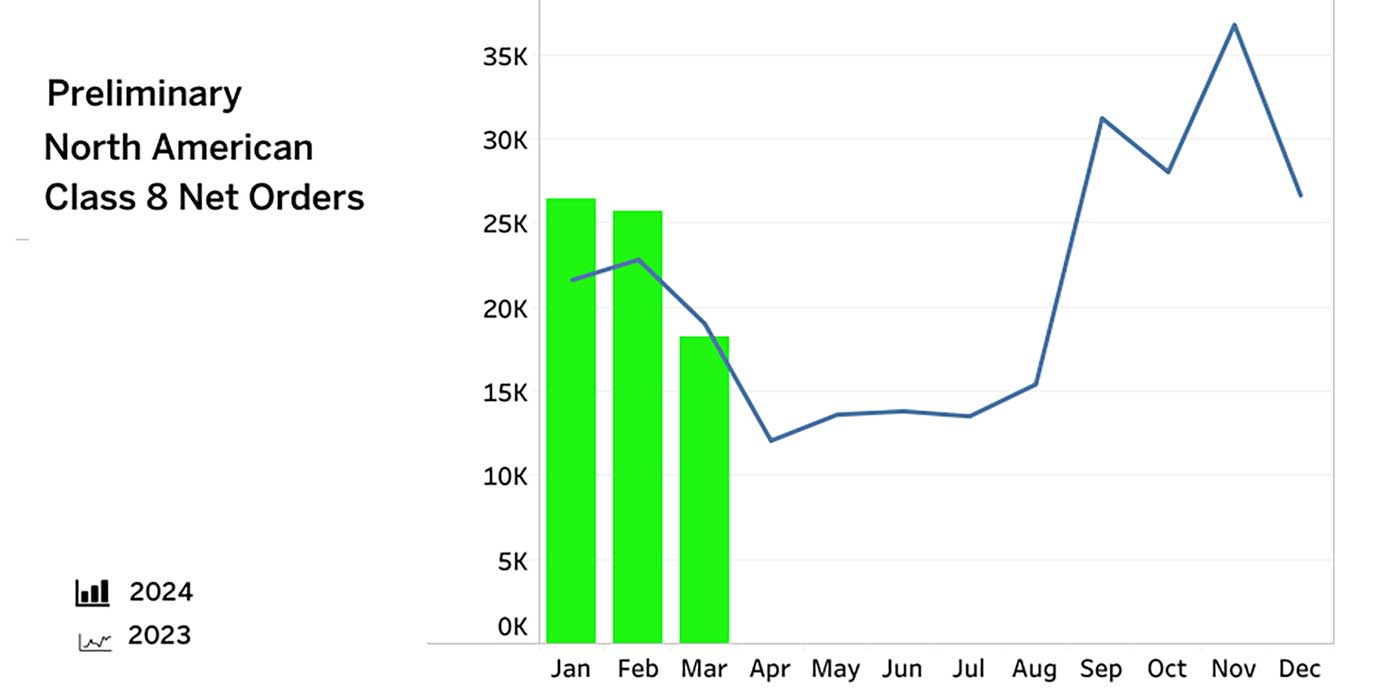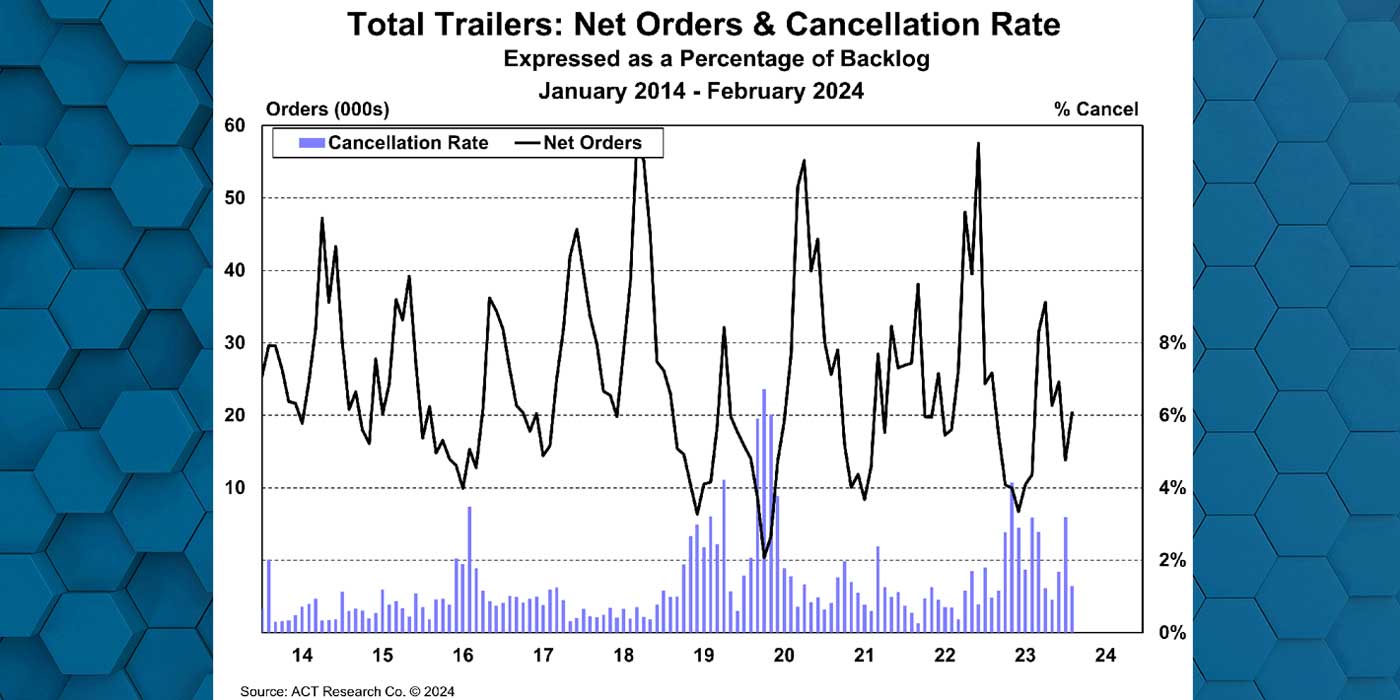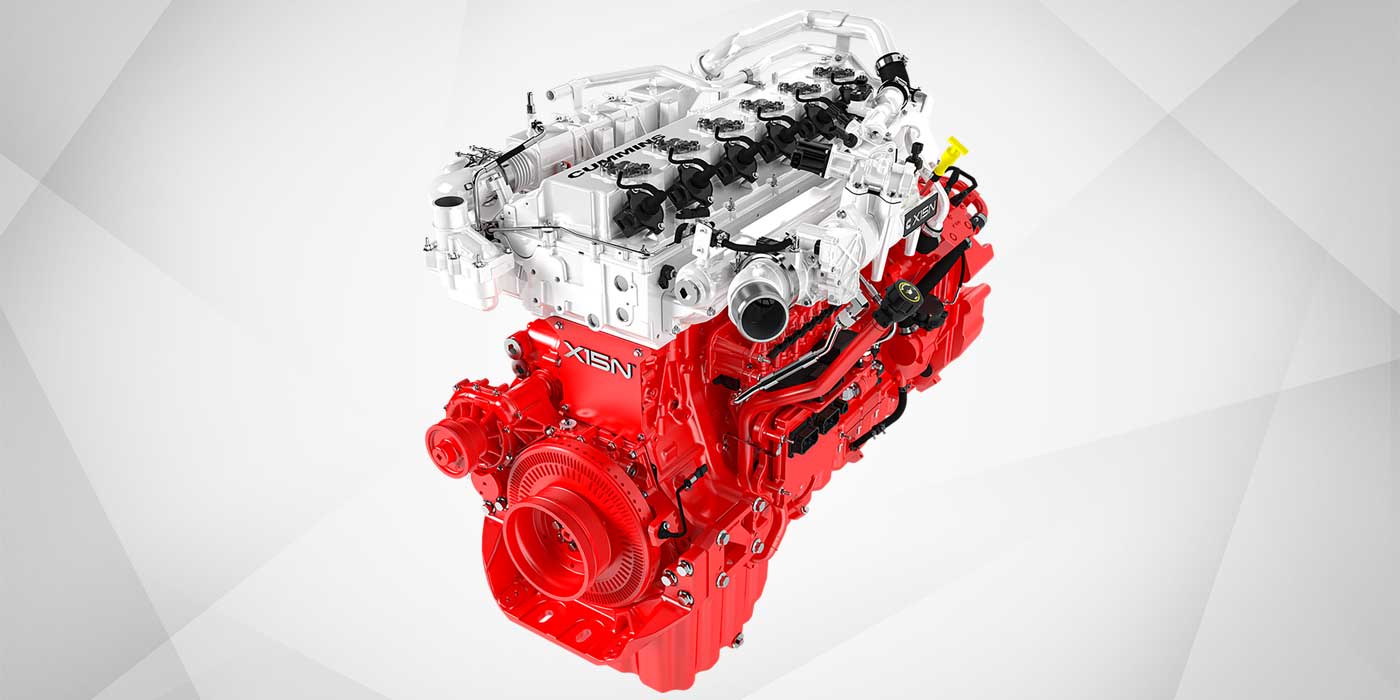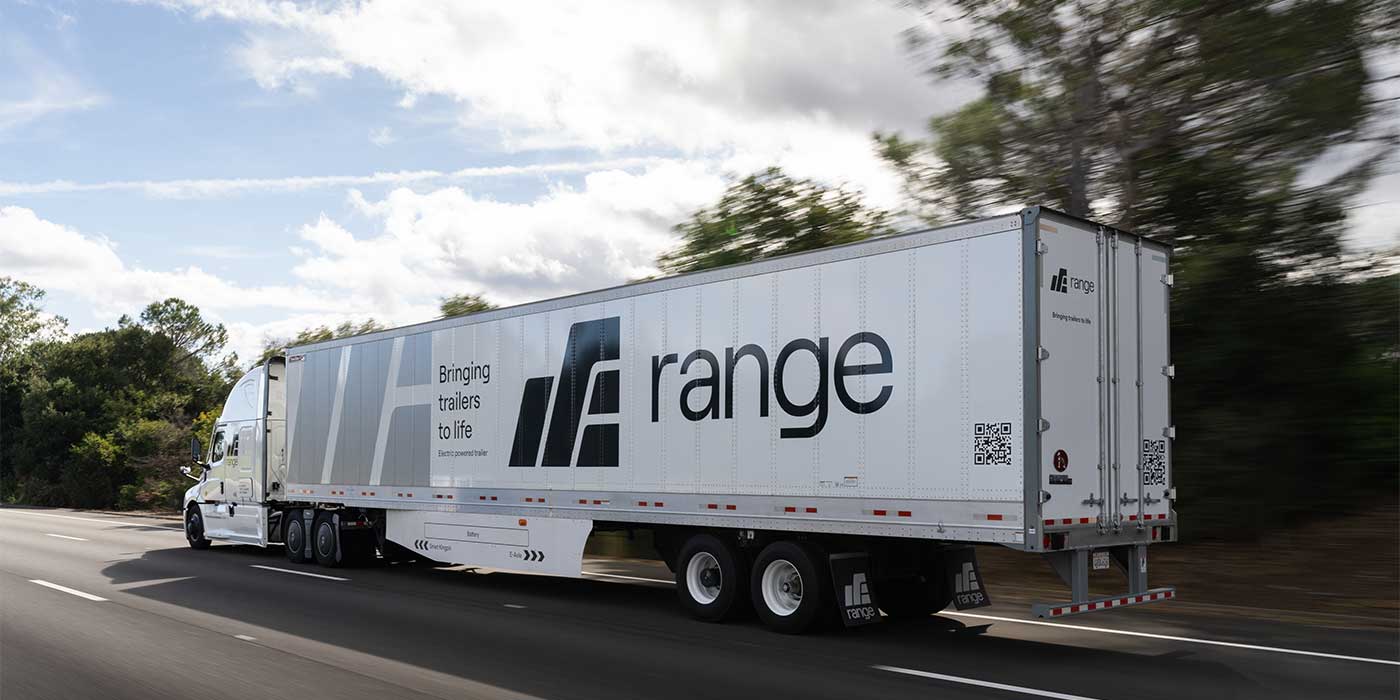From its single location in Mt. Airy, N.C., Mountain River Trucking hauls truckload (TL) to less-than-truckload (LTL) general freight and high-value loads, primarily food and pharmaceuticals, coast-to-coast to Oregon, Washington and California, hauling 250,000 miles annually. It’s the combination of these high-value loads and long, cross-nation drives that has Mountain River focusing on two things when it comes to equipment spec’ing and purchasing: Fuel efficiency and driver retention.
When Pete Smith acquired Mountain River in November 2005, the business was in its infancy with only four trucks in its yard. Under Smith’s guidance, the company has grown 16-fold, with 65 tractors and 98 refrigerated Utility trailers, thanks to the attention placed on fuel saving equipment.
Chasing that fuel economy savings is the name of the game for Smith.
In 2012, after he crunched the numbers, Smith decided he needed to focus on improving fuel economy. Smith replaced his fleet of trucks with Kenworth T660s. When T660s successor hit the market, the Kenworth T680, Smith replaced his entire yard in favor of the Kenworth T680 truck. As his entire fleet is comprised of Kenworth T680s.
“Initially, with the T660s our fleet fuel efficiency average went up to 6.5 MPG. That was a big move for us,” Smith says. “Now, with the T680s, our fleet fuel efficiency average has gone up to 7.8 MPG.”
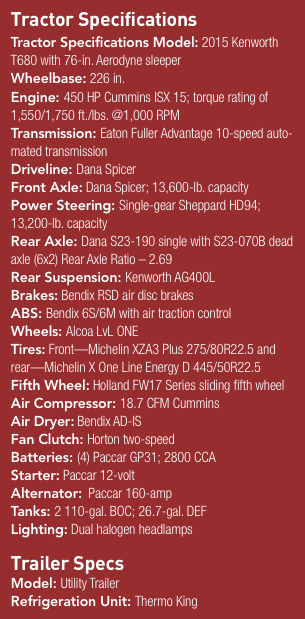 Aerodynamics and engine technology have evolved over the past several years. Smith continues to pursue options that will show positive gains in terms of fuel economy. As the owner, he is not afraid to test new technologies that could yield tremendous results in terms of fuel efficiency. One example of this is the Eaton and Cummins’ SmartAdvantage Powertrain package—a 10-speed transmission that Smith immediately tested and eventually adopted because of its benefits to the fleet.
Aerodynamics and engine technology have evolved over the past several years. Smith continues to pursue options that will show positive gains in terms of fuel economy. As the owner, he is not afraid to test new technologies that could yield tremendous results in terms of fuel efficiency. One example of this is the Eaton and Cummins’ SmartAdvantage Powertrain package—a 10-speed transmission that Smith immediately tested and eventually adopted because of its benefits to the fleet.
“We were one of the first trucking companies with this package,” Smith says, noting that his company does testing for both Kenworth and Cummins. In order to test new technology out, Smith works closely with equipment manufacturers and his Kenworth dealer. Those relationships are essential to Mountain Rivers’ success, he notes.
In order to prove the fuel economy advantages of newer equipment, Mountain River has two tractors/trailers that run identical routes and carry the same load out and back, Smith explains. The only variable is weather.
These tests have led to the fleet adopting many new equipment innovations, including adding TrailerTails and FlowBelow aerodynamic packages to reduce drag and increase aerodynamics.
Smith also focuses on fleet tires for better fuel efficiency. For example, he has run wide-base single tires ever since he purchased the business since 2006. He is invested in preserving the wide-base tire casings, with plans to sell them once the coast-to-coast trips are finished. His fleet doesn’t run retreads—not because Smith doesn’t trust them—but because his fleet runs so many miles that he would rather just sell the casings and run new tires.
“We run 100% new tires,” notes Smith. “We run so far to the west that I just sell the casings. I do run with a spare and carry a cap in the spare rack. I’ve got a new wheel in the spare rack and a new cap for all the trailers.”
Mountain River protects its tire investments and is especially careful to prevent transportation delays that can be common with wide-base tires. All of Mountain River’s trailers have tire pressure monitoring systems (TPMS) and automatic tire inflation systems installed to prevent major disruptions en route to their shipping destination. Additionally, Smith utilizes Qualcomm technology to monitor tires on both the tractors and trailers.
“I don’t know how we operated without Qualcomm tire inflation monitoring,” Smith relates. “We use tire monitors on our trucks and trailers for the wide-base singles. Now when we have a tire with low PSI, it kicks a light on in the dashboard and also sends me an email that a tire is low on the truck or trailer. Qualcomm is also used to track other tractor/
trailer systems..”
For temperature sensitive loads, the fleet uses Thermo King’s TracKing satellite tracking system to monitor temperature in the trailers to prevent cargo loss. Smith adds, “That system really keeps us in check and allows us to keep track of the trailer temperatures.”
Smith continues to test new trends and innovations to ensure that his fleet is ahead of the curve. Currently, it is testing 15 6x2s axles from Kenworth. The testing is just now underway with one truck on its second trip. As with the Kenworth T680s, Smith will run the 6x2s through the same testing procedures and determine their viability based on the results of those tests.
Equipment that keeps drivers
Keeping experienced, professional and safe drivers is of the upmost importance to Mountain River and influences how the fleet specs vehicles. In fact, despite a long-term nationwide shortage of drivers, Mountain River has been able to easily recruit and retain talent. Smith believes that the fleet is better able to retain and recruit drivers better because of the quality trucks, technology and practices it has in place.
He specs the Kenworth T680s sleepers as carefully as he would aerodynamic components. Mountain River’s tractors are 76-in. sleepers with Kenworth’s Diamond VIT interior. The fleet also purchases navigation systems, refrigerators, double bunks, satellite radio, wall mounts for flat-panel TVs and inverters for two-person driving teams. The fleet justifies the investment by pointing to the quality and consistency of its driving teams and their ability to excel above and beyond fuel efficiency expectations. One of Mountain River’s exemplary driving teams is husband and wife duo, Mitch and Sherri Dowell. According to Smith, the couple is achieving 8.6 mpg with the combination of a fuel-efficient powertrain and trailer aerodynamics. “That’s outstanding,” Smith says.
By equipping company drivers with the necessary tools, equipment and creature comforts to achieve outstanding fuel performance and retain quality drivers, Mountain River Trucking makes every mile count.

